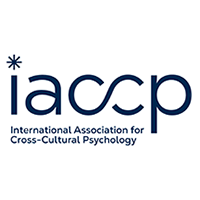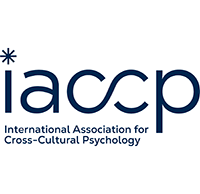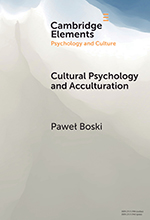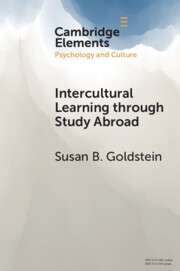International Association for Cross Cultural Psychology
The IACCP was founded in 1972 to facilitate communication among people interested in a diverse range of issues involving culture and psychology.
Commitment to Science and Compassion: IACCP's Values in a Diverse and Complex World
The International Association for Cross-Cultural Psychology is a highly diverse scientific society committed to advancing our understanding of the intersections of psychology and culture. We prioritize the application of scientific methods to deepen our insights into the human condition and to contribute to a more compassionate world for every individual. We reject violence, including terrorism, as a means to resolve interpersonal and international conflicts. We believe that all lives hold equal worth, transcending the many collective and individual identities that distinguish us. We extend our heartfelt sympathies to those who endure physical and emotional suffering, including our members and all those affected by violence, and the increasingly frequent natural and human-induced disasters.
Events
Association News
CALL FOR NOMINATIONS AND APPLICATIONS CO-EDITOR, JOURNAL OF CROSS-CULTURAL PSYCHOLOGY (JCCP) Journal of Cross-Cultural Psychology (JCCP), the flagship journal of…
The keynotes and the IACCP Presidential Address are published in our IACCP YouTube channel. You can access the keynotes using…
The book of abstracts of the Brisbane Conference is available: https://scholarworks.gvsu.edu/iaccp_regional/2/.
Publications
Journal of Cross-Cultural Psychology
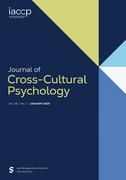 The paperless Journal of Cross-Cultural Psychology provides the latest empirical research on important cross-cultural questions in social, developmental, cognitive, linguistic, personality, organizational and other areas of psychology. Each volume of JCCP includes empirical papers, brief reports, and integrative review articles of empirical cross-cultural research, along with theoretical papers that may suggest new orientations for future research. The Journal publishes cross-cultural and single culture studies, and quantitative, qualitative, and mixed methods are represented. It supplements its broad coverage with single-themed Special Issues and Special Sections dedicated to topics of particular interest.
The paperless Journal of Cross-Cultural Psychology provides the latest empirical research on important cross-cultural questions in social, developmental, cognitive, linguistic, personality, organizational and other areas of psychology. Each volume of JCCP includes empirical papers, brief reports, and integrative review articles of empirical cross-cultural research, along with theoretical papers that may suggest new orientations for future research. The Journal publishes cross-cultural and single culture studies, and quantitative, qualitative, and mixed methods are represented. It supplements its broad coverage with single-themed Special Issues and Special Sections dedicated to topics of particular interest.
Members have free access to current and past issues of JCCP online: click on the My Account link on the upper/right of all pages.
Online Readings in Psychology and Culture
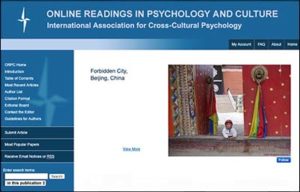 The Online Readings in Psychology and Culture (ORPC) is designed to serve as a resource for researchers, teachers, students, and anyone who is interested in the interrelationships between Psychology and Culture. Sponsored by the International Association of Cross-Cultural Psychology (IACCP), this publication is a free online resource for readers and authors.
The Online Readings in Psychology and Culture (ORPC) is designed to serve as a resource for researchers, teachers, students, and anyone who is interested in the interrelationships between Psychology and Culture. Sponsored by the International Association of Cross-Cultural Psychology (IACCP), this publication is a free online resource for readers and authors.










